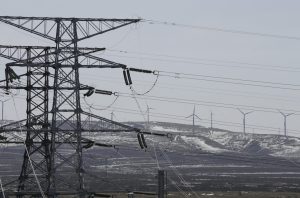China’s top technology companies are still keen on buying Nvidia processors despite the pushback from Beijing against their purchases, as domestic manufacturers like Huawei struggle to meet demand, reports Reuters citing people with knowledge of procurement discussions.
Top firms like Alibaba and ByteDance want reassurance from Nvidia that their orders for the H20 artificial intelligence chips are being processed after the Donald Trump administration allowed their sales in China in July.
The firms are also closely monitoring Nvidia’s plans to release a more powerful chip, tentatively named the B30A, in China, Reuters reported.
Also on AF: US Ends Chip Waiver For TSMC To Supply Its Chinese Fabs
Demand for Nvidia chips remains strong in China due to constrained supplies of products from domestic rivals such as Huawei and Cambricon, sources told Reuters.
Another three sources involved in engineering operations at Chinese tech firms also said Nvidia’s chips perform better than domestic products.
Meanwhile, Nvidia’s planned B30A chip promises to be up to six times more powerful than the currently available H20 chips. It is based on the chipmaker’s powerful Blackwell architecture.
If approved for sale by Washington, the The t30A is likely to cost about double the H20 – which currently sells for between $10,000 and $12,000 – two people told Reuters.
Chinese tech firms perceive the potential B30A pricing as a good deal, they added.
Sources also said Nvidia CEO Jensen Huang had assured Chinese customers not to worry about the H20’s availability and told suppliers that demand remains strong. Huang is hoping to deliver samples of the B30A to Chinese clients for testing as early as September.
Beijing pushback
Chinese firms’ eagerness to purchase Nvidia chips has remained unaffected by the recent pushback from regulators in Beijing against their purchases. They have, so far, not ordered firms to cease purchases of Nvidia products.
But at the same time, China is keen for its tech industry to wean itself off US chips. Last month, Chinese authorities summoned companies, including Tencent and ByteDance, over their purchases of the H20 and asked them to explain their reasons after expressing concerns over security risks.
Chinese officials have also reportedly taken offence from remarks by US Commerce Secretary Howard Lutnick in July, wherein he stressed that the US doesn’t even sell China its “third-best” chips. He also said at the time that the idea behind restarting sales of H20 chips to China — after a brief ban — was to get Chinese developers “addicted to the American technology stack”.
Some of China’s senior leaders and regulators found the comments “insulting”, the Financial Times reported last month.
$50 billion market
Meanwhile, Nvidia also remains keen to sell in China where its absence has created gaps that both Huawei and Cambricon have rushed to fill. Often seen as China’s answer to Nvidia, Cambricon saw its stock more than double last month after posting a record first-half net profit of 1 billion yuan ($140 million).
The company’s shares slipped this week on profit-booking but were up again by more than 6% on Friday. Companies like ByteDance are among the top buyers of Cambricon’s chips.
When asked about its position versus rivals in China, Nvidia said in a statement to Reuters that the “competition has undeniably arrived.”
Lack of clarity about Nvidia’s prospects in China led the US firm in late August to issue a tepid quarterly sales forecast that excluded potential revenue from the world’s second-biggest economy. The company, the most valuable in the world, has seen its stock lose 6% since then.
During its earnings call, Nvidia executives said the company had received some export licenses for H20 but had yet to commence shipping because it was sorting out some issues related to the deal to give the US government a portion of its China sales. The chipmaker has an inventory of 600,000-700,000 H20 chips.
Nvidia chief Huang has previously called the export control regime aimed at cutting advanced chip shipments to China a ‘failure’. He estimates that the China market could be worth $50 billion to Nvidia if it were able to offer competitive products.
The extent to which China, which generated 13% of Nvidia’s revenue in the past financial year, can have access to cutting-edge AI chips is one of the biggest flashpoints in the US-Sino war for tech supremacy.
On one hand, the US is continuing to step up the pressure on China, including by revoking permissions to top chipmakers such as TSMC and Samsung to supply critical chipmaking tools to their Chinese fabs. On the other, Washington has retreated from its previous position of more severe restrictions on Nvidia sales of advanced chips to China.
US President Donald Trump has also struck a deal with Nvidia for it to give the US government 15% of its H20 revenue.
- Reuters, with additional editing and inputs from Vishakha Saxena
Also read:
US ‘Put Trackers in AI Chip Shipments to Catch Diversions to China’
‘Can Destroy China’: Trump Says Beijing Has to Give US Magnets
Nvidia CEO Meets TSMC, in Talks With US on New China Chip
Cadence and Nvidia Dealings in China Drawing Close Scrutiny
US Unveils 100% Tariff on Imported Chips But Key Firms Exempt
Nvidia CEO Says US Export Curbs on AI Chips is ‘Flawed’ Policy
China’s Huawei ‘Hoping Its New AI Chip Can Outpower Nvidia’
China’s Huawei, SMIC ‘to Ramp Up Production’ of Newest AI Chip
Huawei, SMIC Set to Defy US Sanctions With 5nm Chips: FT
Satellite Images Show Huawei’s Expanding Chip Facilities – FT
Nvidia’s Bid To Stop Huawei
China Science Vs US Export Controls























